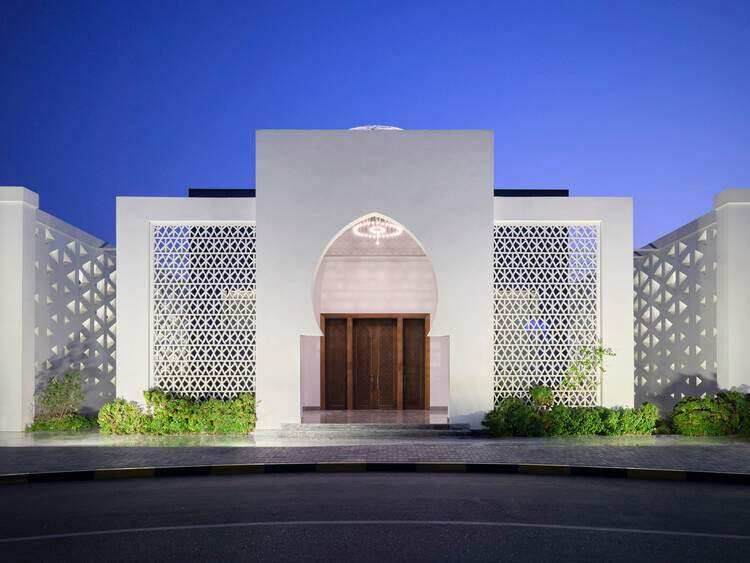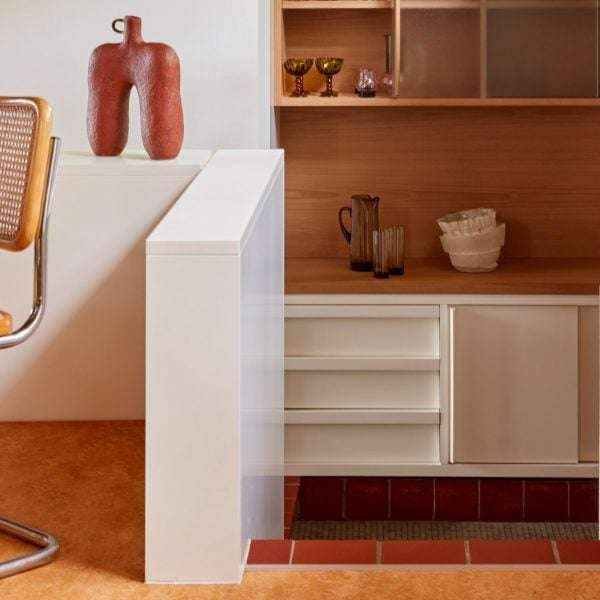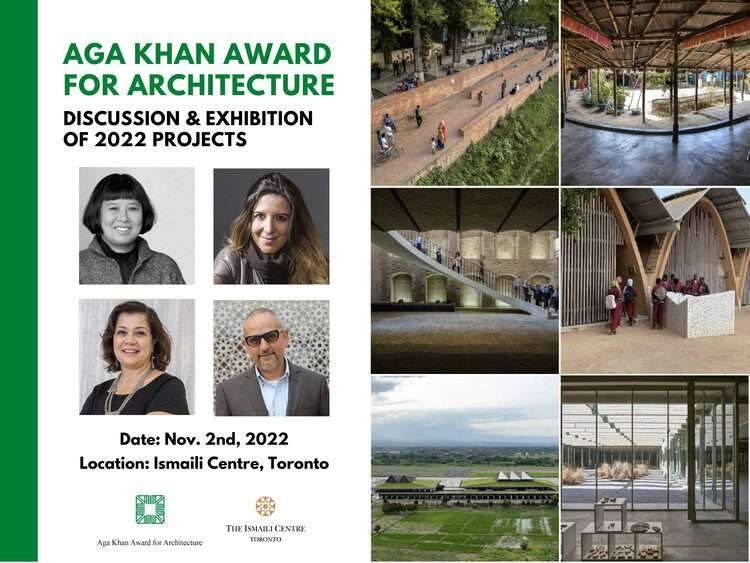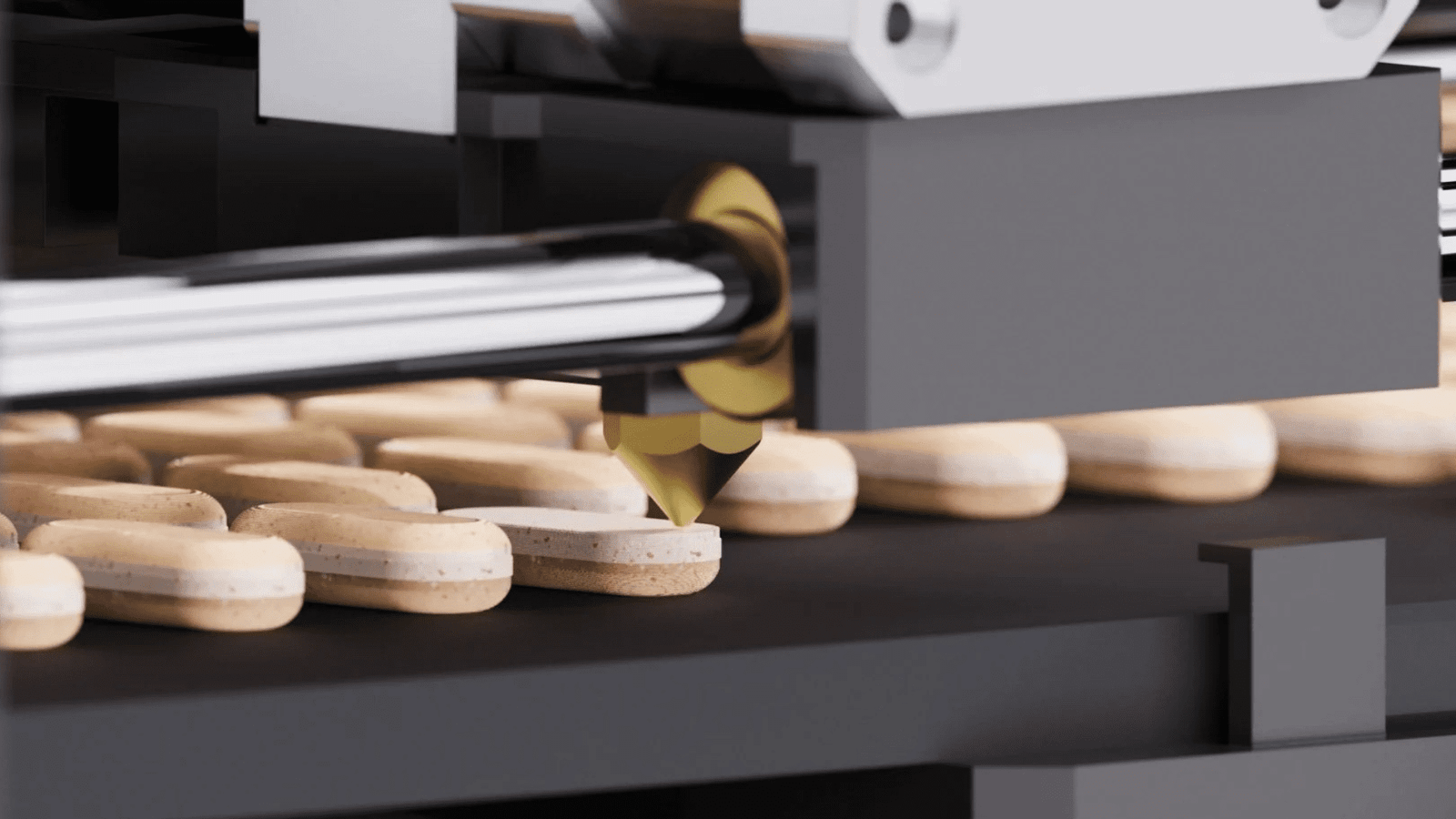Sharjah Mosque / MJU Engineering Consultancy
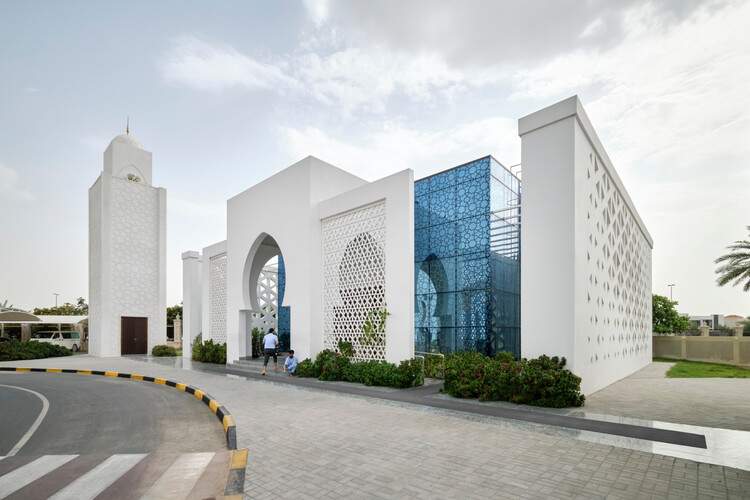
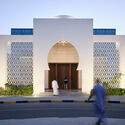
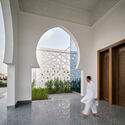
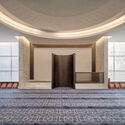
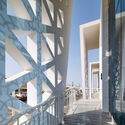

- Area:
621 m²
Year:
2022
-
Lead Architects:
Muwafak Al Juboory
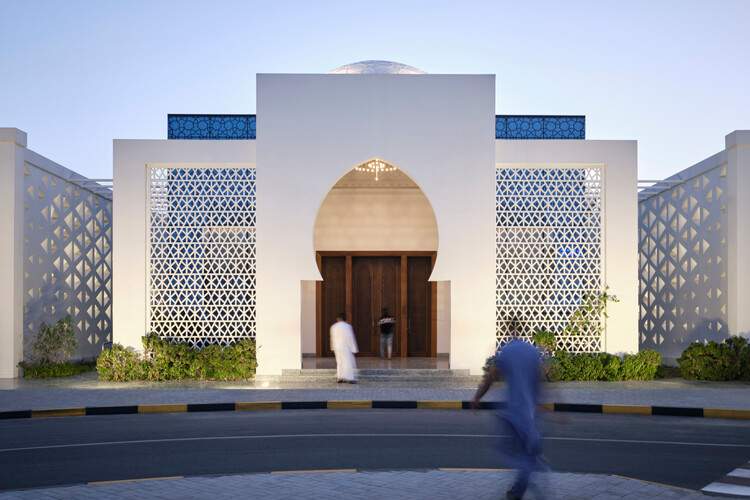
Text description provided by the architects. The mosque designed by MJU Engineering Consultancy for the Sharjah Driving Institute exemplifies a harmonious blend of contemporary architectural language with traditional Islamic motifs, reflecting both cultural significance and modern functionality. The design draws inspiration from the rich history of Islamic architecture, characterized by intricate geometric forms and the use of light. The façade features elaborate “mashrabiya” screens that filter sunlight, creating a dynamic interplay of light and shadow within the interior spaces. This not only enhances the spiritual ambiance but also promotes energy efficiency by reducing heat gain.
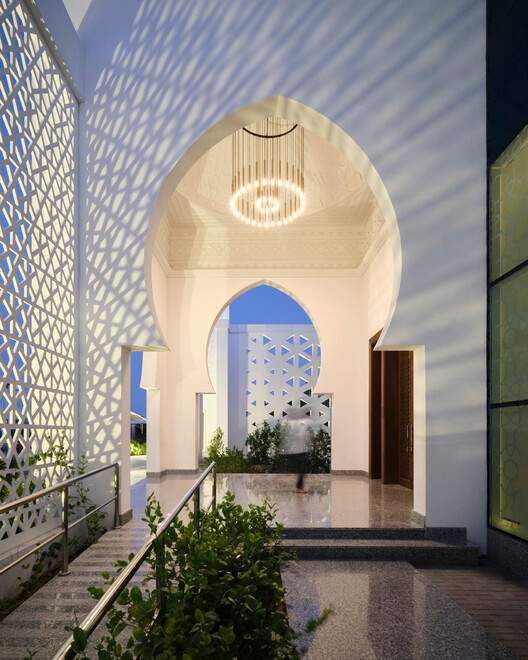
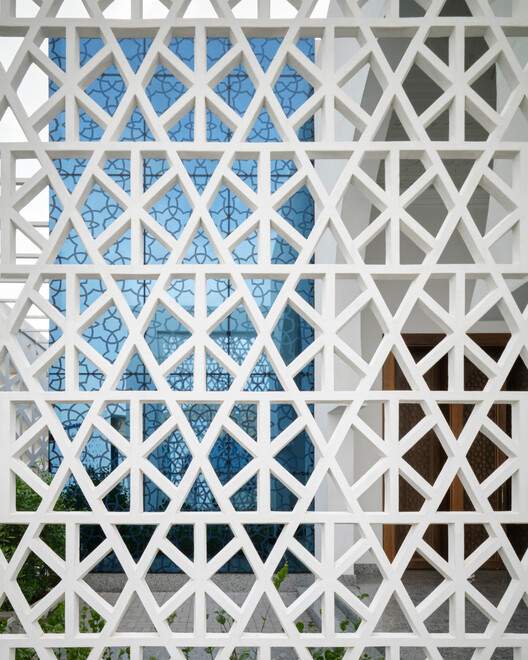
The central prayer hall is strategically designed to accommodate large congregations while ensuring a serene atmosphere conducive to worship. The spatial configuration of the mosque enhances the user experience and facilitates community engagement. This multifunctional approach serves the spiritual needs of the community while promoting social interaction, creating a cohesive environment that is accessible and inviting.
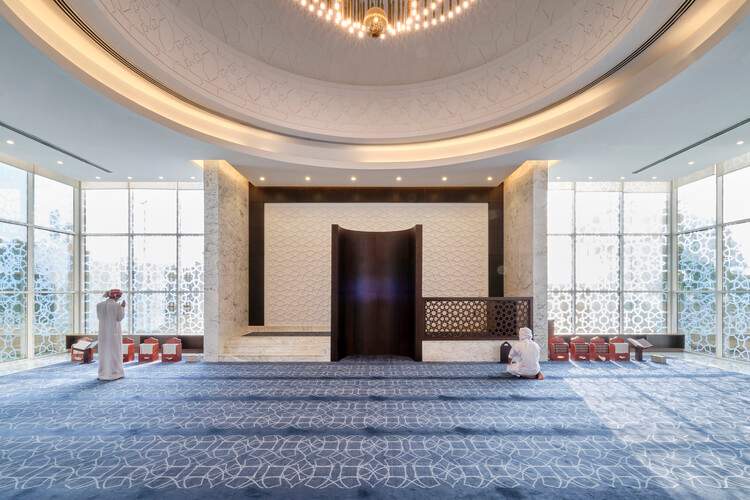
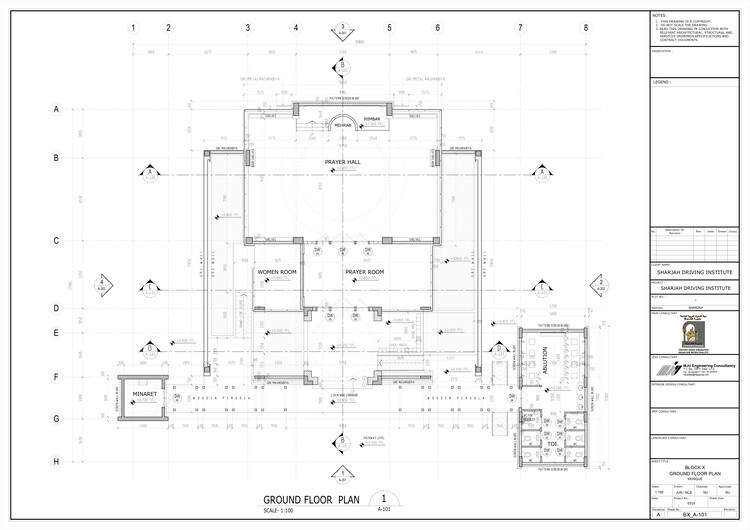
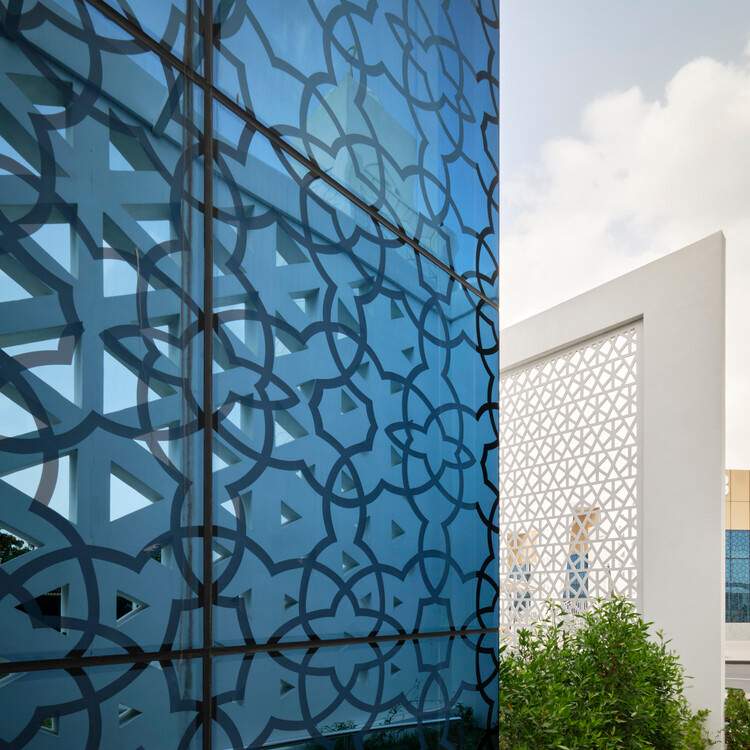
The construction techniques utilized in this project focus on sustainability and durability. Reinforced concrete was employed to create expansive open spaces, while the façade was crafted using a combination of glass and precast concrete panels. The incorporation of local stone not only supports regional craftsmanship but also enhances the mosque’s connection to the landscape. Innovative technologies, such as Building Information Modeling (BIM), facilitated precise planning and execution, ensuring adherence to the project timeline and budget.
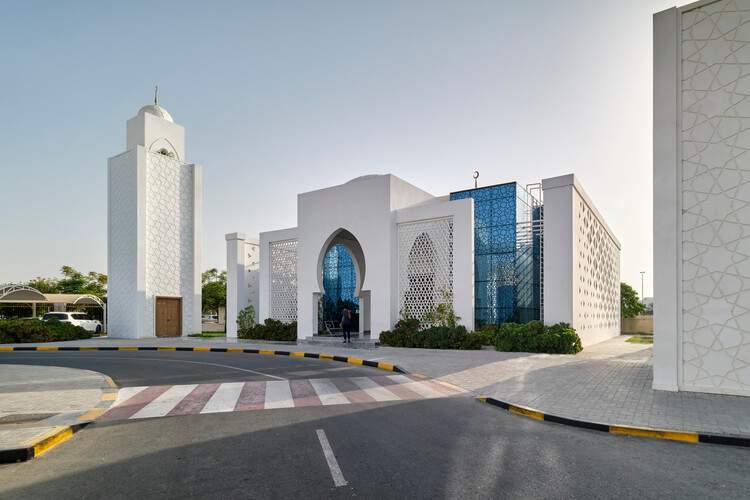
The architectural language of the mosque is defined by geometric precision and ornamental details. Interlocking geometric patterns in the façade serve as a visual representation of unity and harmony, key principles in Islamic philosophy. The dome, a traditional element in mosque architecture, is reinterpreted with a contemporary twist, utilizing a minimalist design that maintains a sense of grandeur without overwhelming the overall aesthetic. This juxtaposition of solid and void in the design creates visual interest and allows natural light to permeate the interior, enhancing the spiritual experience for worshippers.
